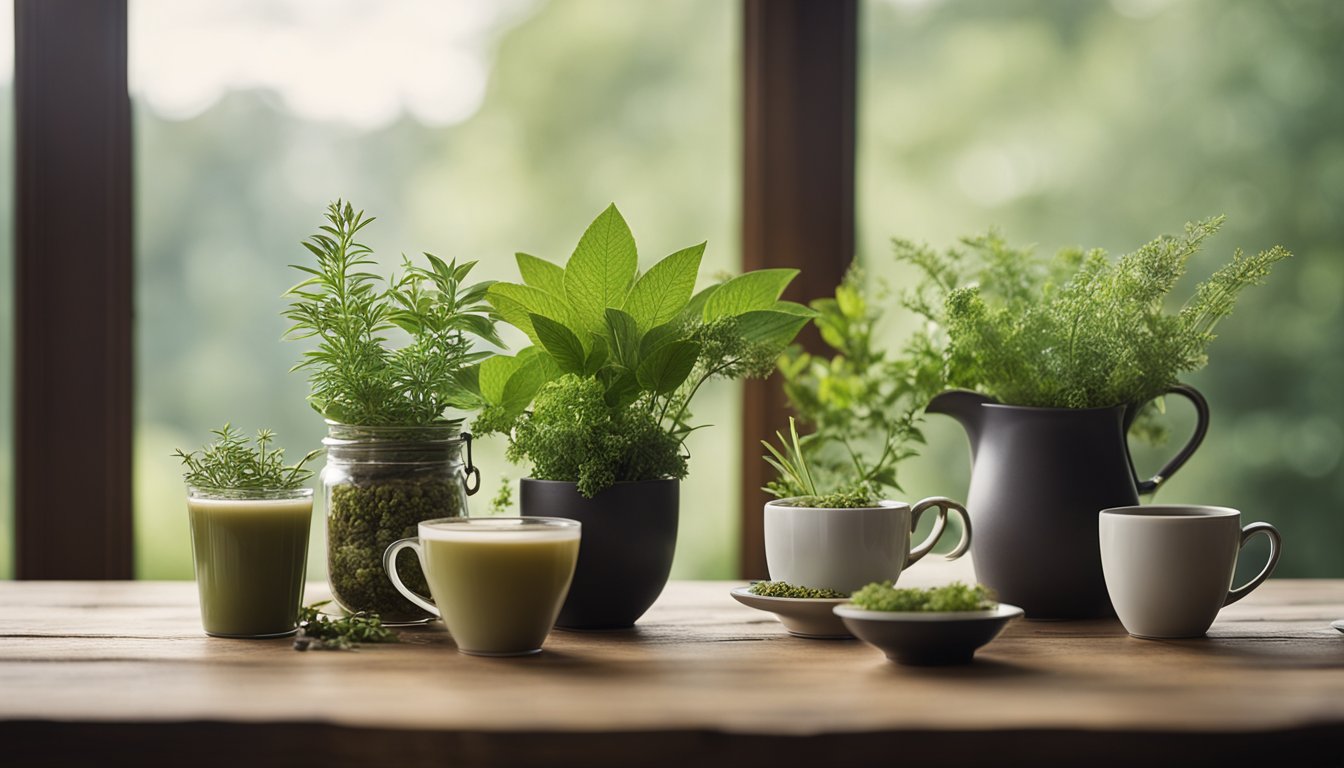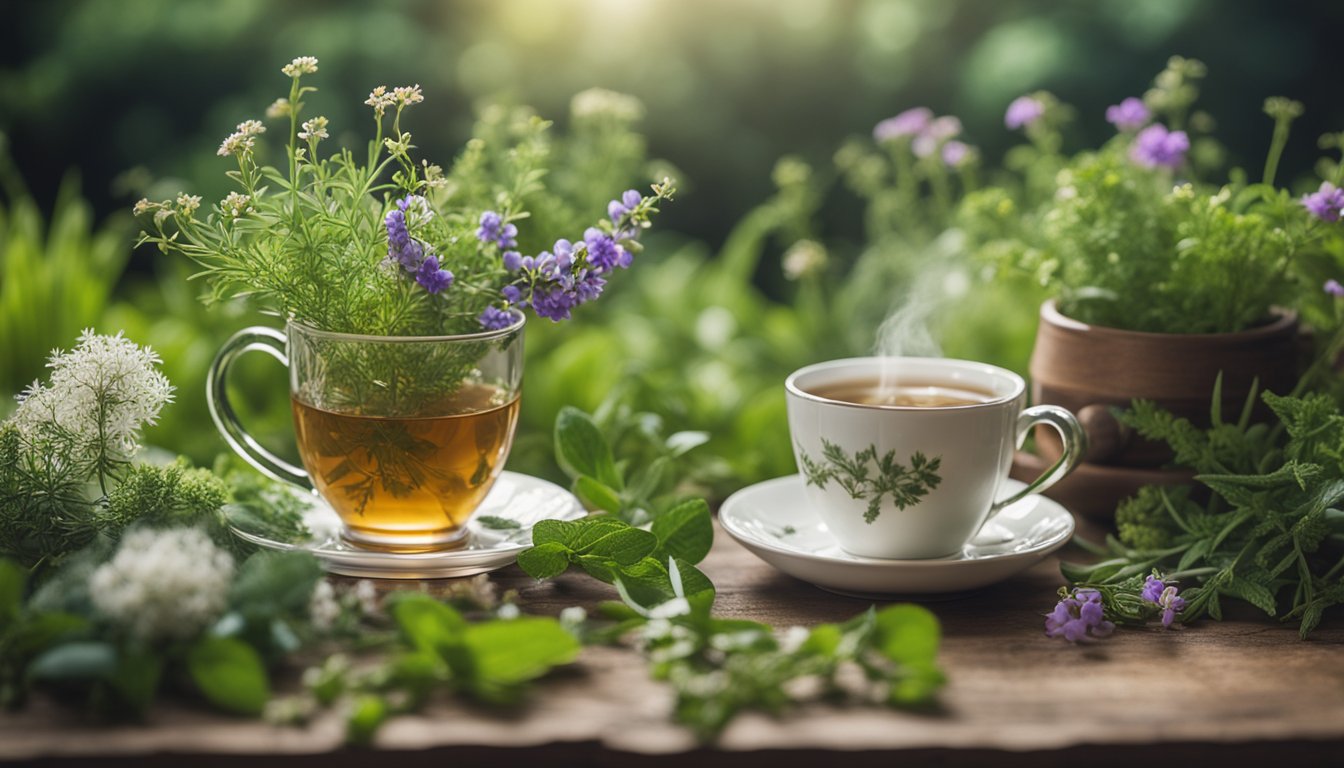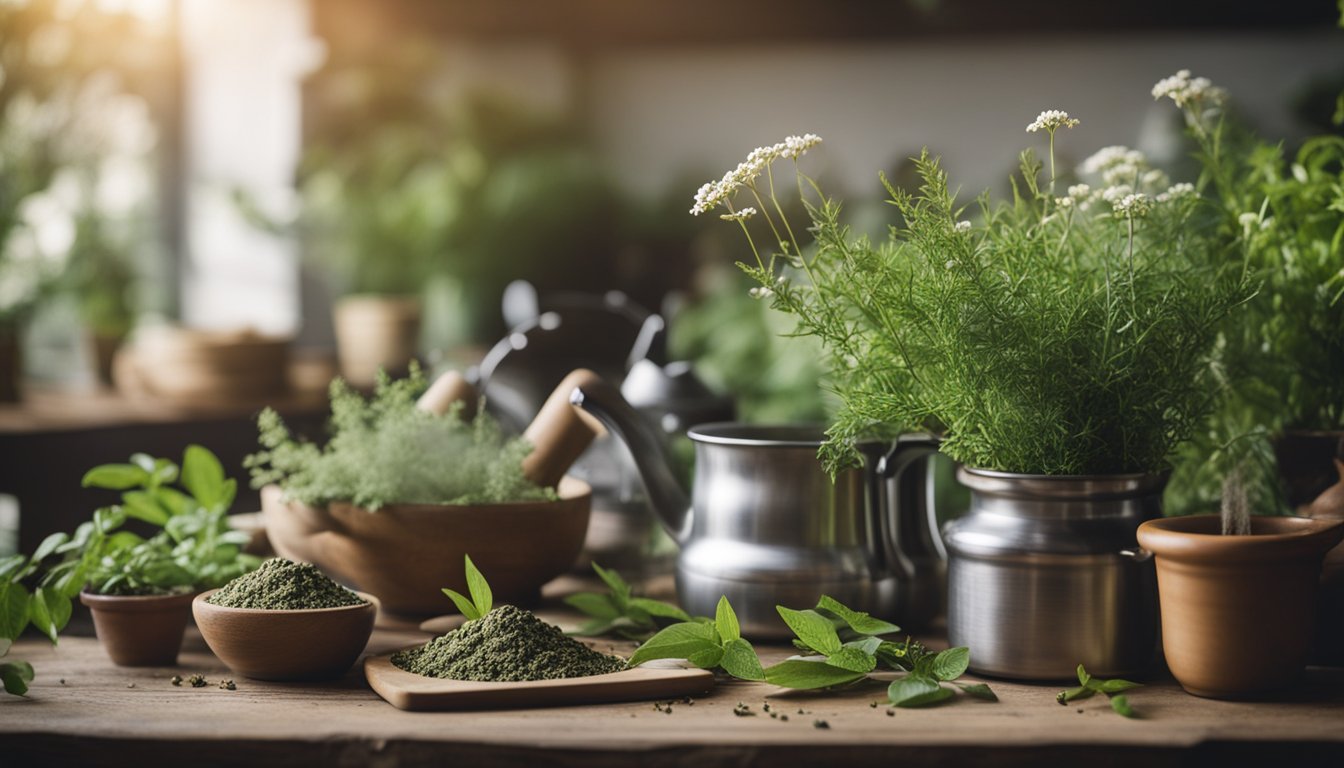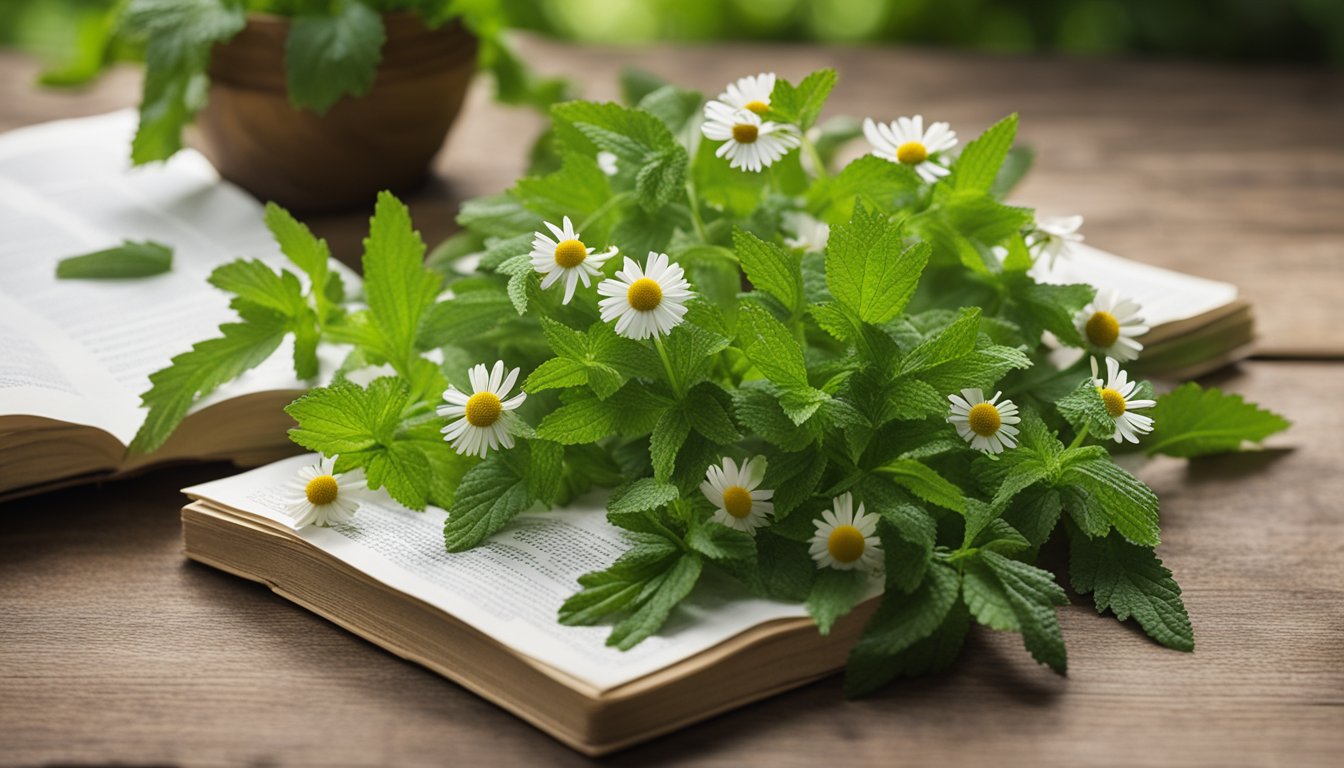Late updated: 16 Aug 2024 14:08
Written by: Emily Thornton
Herbal Teas From Native UK Plants: A Guide to Traditional Infusions
Herbal Teas From Native UK Plants

Herbal teas offer a delightful and beneficial way to enjoy nature's bounty. By using native UK plants, we can create refreshing, caffeine-free beverages that also support our well-being. From soothing chamomile to invigorating nettle, UK native plants provide a wealth of flavours and health benefits.
Growing these herbs in our gardens or foraging for them in the wild connects us with tradition and the natural world. The process of harvesting and brewing them is simple yet immensely rewarding. Whether you prefer the calming effects of lemon balm or the digestive benefits of peppermint, there's a native herbal tea for everyone.
Understanding the origins and uses of these plants enriches our appreciation for them. The subtle differences in taste and aroma between wild and cultivated varieties make exploring herbal teas an ongoing adventure. We find joy in discovering which combinations resonate most with our senses and health needs.
Key Takeaways
- Native UK plants provide a variety of flavours and health benefits for herbal teas.
- Growing or foraging for these plants connects us with nature and tradition.
- Brewing native herbs is simple and enriches our appreciation of their unique qualities.
Understanding Herbal Teas and Their Benefits

Herbal teas offer a variety of advantages, ranging from stress relief to aiding digestion. They differ from traditional teas as they are made from a range of plants not related to the Camellia sinensis tea plant. These points are crucial for grasping their distinct nature and health benefits.
The Essence of Herbal Teas
Herbal teas, unlike traditional teas, are infusions made from roots, berries, flowers, seeds, and leaves of various plants. Popular selections include chamomile, mint, and lavender. These are cherished not only for their unique flavours but also for their therapeutic properties. The preparation involves steeping plant materials in hot water, creating a caffeine-free beverage ideal for any time of the day.
Health Advantages of Herbal Brews
Herbal teas are renowned for their health benefits. Chamomile aids in relaxation and sleep. Peppermint tea supports digestion and acts as a natural detoxifier. Lavender tea can ease anxiety, promoting a sense of calm. These brews are rich in antioxidants, which help protect against cellular damage. Furthermore, herbs like nettle and hibiscus possess anti-inflammatory properties, adding to their therapeutic value.
Herbal Teas Vs. Traditional Teas
Traditional teas, such as black, green, and oolong, come from the Camellia sinensis plant and contain caffeine. Herbal teas, made from various other plants, are typically caffeine-free, offering a soothing alternative. While traditional teas are praised for their antioxidants and metabolism-boosting properties, herbal infusions are celebrated for their detox, calming, and digestive benefits. This clear distinction helps us appreciate each type's unique qualities and health benefits.
Creating Herbal Teas from UK Plants

Making herbal teas from native UK plants is an engaging and rewarding experience. We'll explore how to select and grow your herbs, the best preparation and brewing techniques, and important safety considerations.
Selecting and Growing Your Herbs
The first step is choosing suitable herbs that can thrive in the UK climate. Indigenous options like mint, chamomile, nettle, lemon balm, and raspberry leaf are excellent choices.
Mint, including peppermint and spearmint (Mentha spicata), is vigorous and best grown in containers. Chamomile, both Roman chamomile and German chamomile, offers a soothing infusion.
Nettle is rich in nutrients and requires minimal care. Lemon balm (Melissa officinalis) and lemon verbena (Aloysia citrodora) bring refreshing citrus notes. Raspberry and blackberry leaves can be harvested in late spring and early summer. Planting perennials like rosemary and bee balm attract pollinating insects, ensuring biodiversity in our gardens.
Preparation and Brewing Techniques
Once the herbs are grown and harvested, the next step is preparation and brewing. Fresh herbs are ideal but can also be dried for later use. To dry, tie small bundles and hang them in a well-ventilated, dark area. Alternatively, use a dehydrator.
For brewing, use a standard guideline of 1-2 teaspoons of dried herbs (or 2-4 teaspoons of fresh herbs) per cup of boiling water. Allow the herbs to steep for 5-10 minutes. Strain and sweeten as desired with honey or add a slice of lemon.
Combining herbs can create complex and delightful flavours. For instance, blending lemongrass (Cymbopogon citratus) with ginger and lemon verbena provides a zesty, invigorating tea. Another blend could be nettle with peppermint and fennel seeds for a soothing, digestive aid.
Safety and Considerations
Safety is paramount when creating herbal teas. Some herbs, such as mugwort and rosemary, should be consumed in moderation. Pregnant individuals should consult a healthcare professional before using herbs such as nettle and raspberry leaf.
Identifying plants correctly ensures we avoid toxic species. Foraging should be done with caution, ensuring herbs are collected from clean, uncontaminated areas.
Understanding individual allergies and sensitivities is crucial. It's best to introduce new herbs slowly to observe any adverse reactions. Additionally, ensure dried herbs are stored in airtight containers to preserve their potency and prevent mould.
By carefully selecting, preparing, and consuming these herbal teas, we can enjoy the rich benefits and diverse flavours they offer.
Frequently Asked Questions

In this section, we address some common queries about herbal teas derived from native UK plants. Discover the health benefits, preparation methods, and suitable wild plants for brewing.
What are the health benefits of herbal teas made from native UK plants?
Herbal teas from native UK plants can offer various health benefits. For example, nettle tea is known for its anti-inflammatory properties and high antioxidant content. Other herbal teas, like those from wild garlic, can help boost the immune system due to their antimicrobial qualities.
Which native UK plants are most suitable for creating herbal teas?
There are several native UK plants that are excellent for making herbal teas. Some of the most popular include nettles, wild garlic, cowslips, and primroses. Each of these plants brings its unique flavour and health benefits to the tea.
How can one prepare herbal tea using foraged UK plants?
To prepare herbal tea from foraged plants, first ensure they are correctly identified and thoroughly washed. Then, dry the herbs or use them fresh by steeping a handful in hot water for about 5-10 minutes. Strain the mixture before drinking.
Are there any edible wild plants in the UK that can be used to brew tea?
Yes, various edible wild plants in the UK can be used to brew tea. For example, bramble leaves, dandelions, and mint are all safe and flavourful options. Always forage responsibly and ensure correct plant identification.
What are the best recipes for making tea from bramble and other native UK plants?
To make bramble tea, wash and dry fresh leaves, then steep them in hot water for 5-10 minutes. For a twist, add a slice of lemon or a bit of honey. Other recipes include combining nettle and mint leaves or making a blend of wild garlic and primrose flowers.
How is 'herbal tea' commonly referred to in British vernacular?
In British vernacular, herbal tea is often called 'tisane.' This term refers to any non-caffeinated beverage made by infusing herbs, spices, or other plant materials in water.
